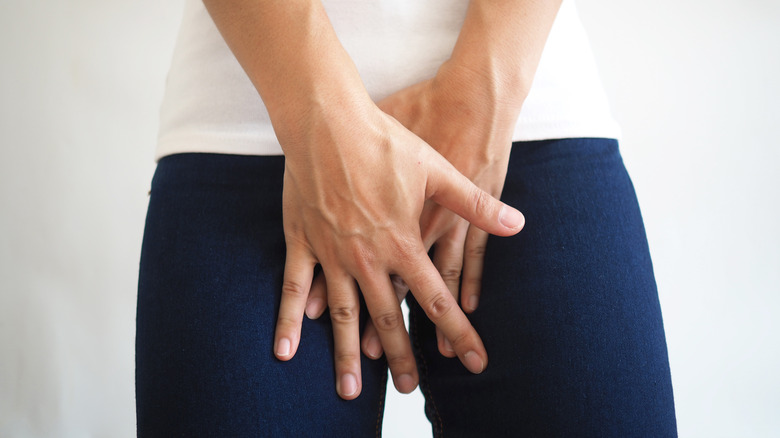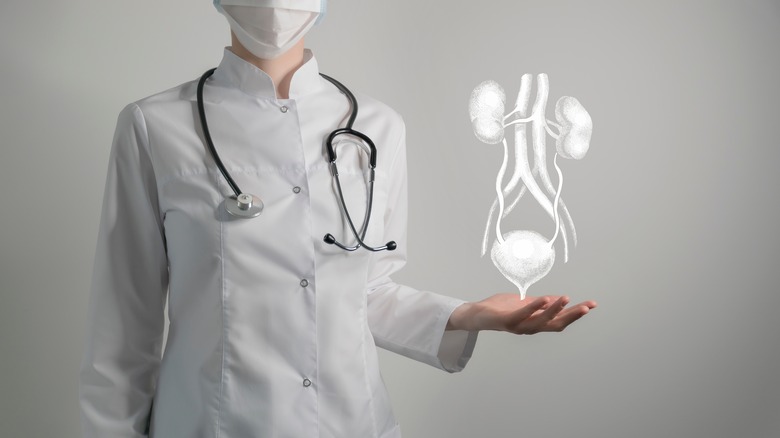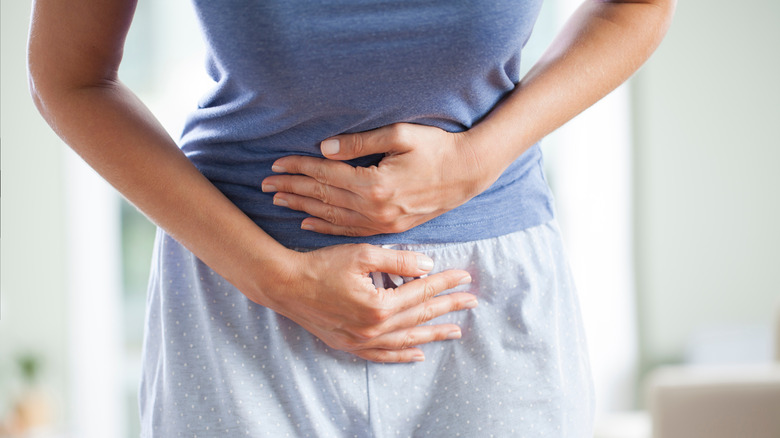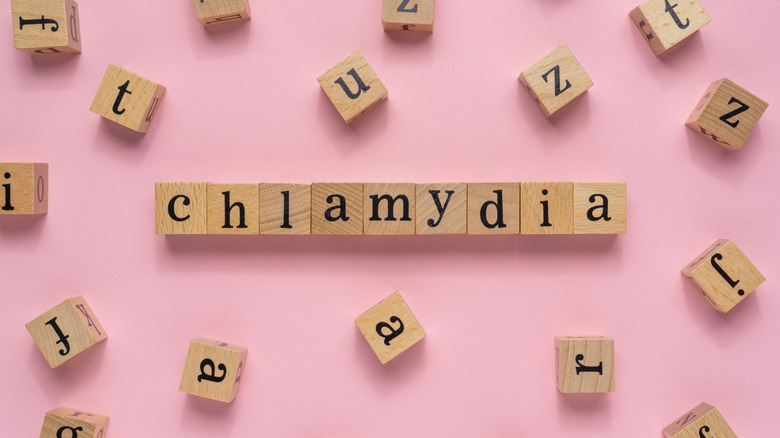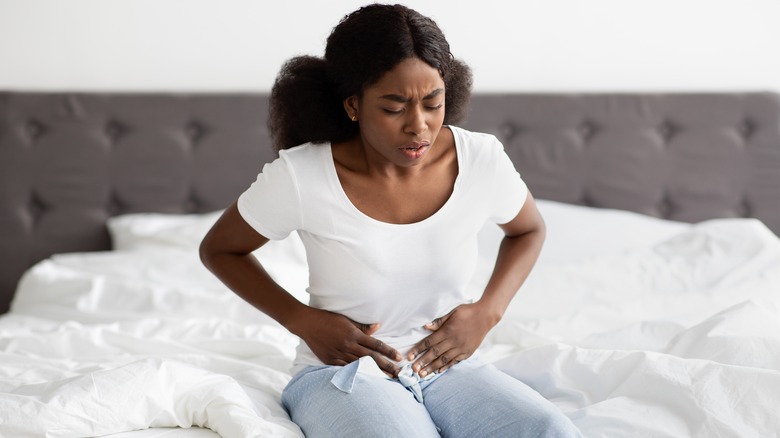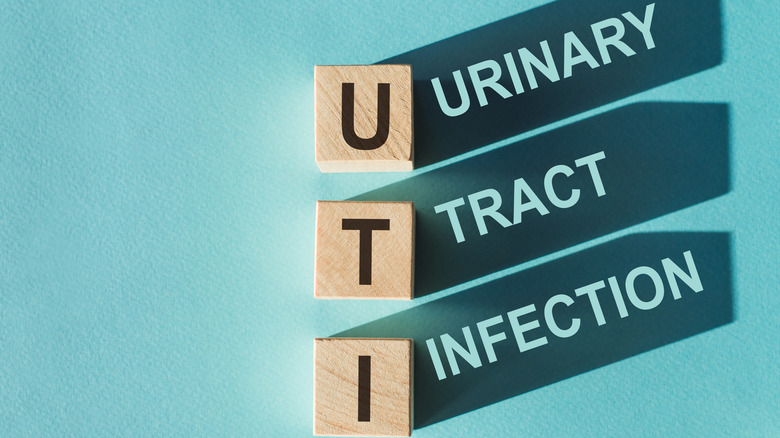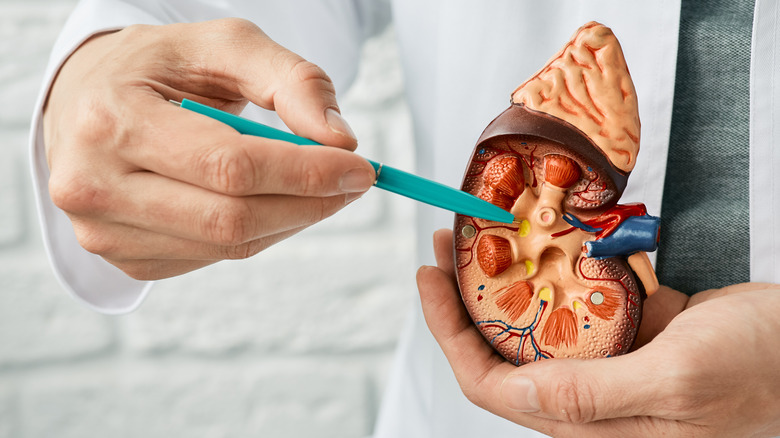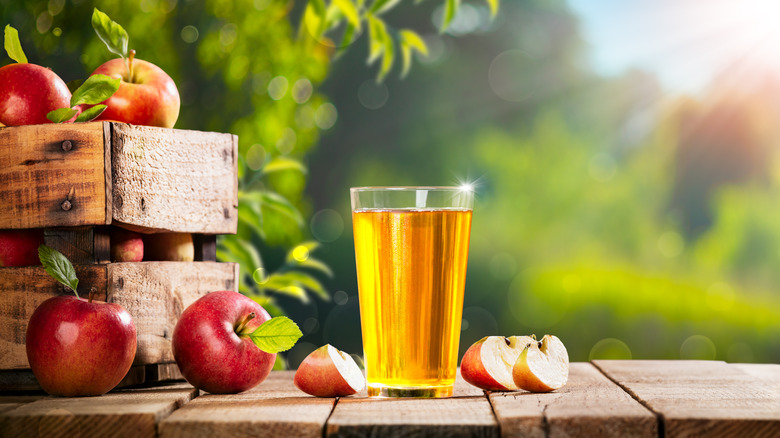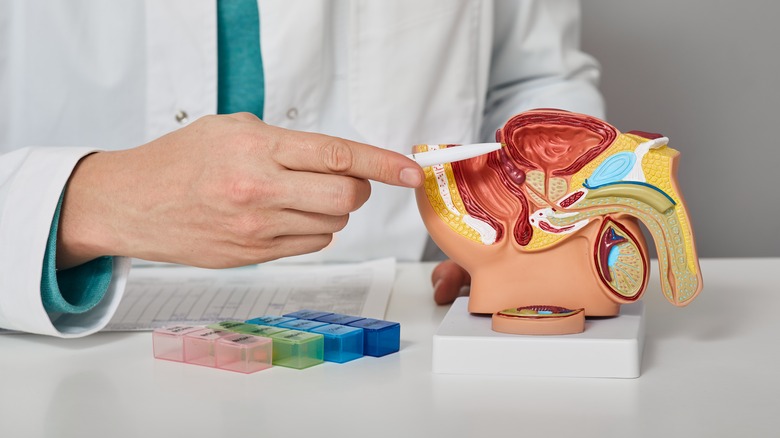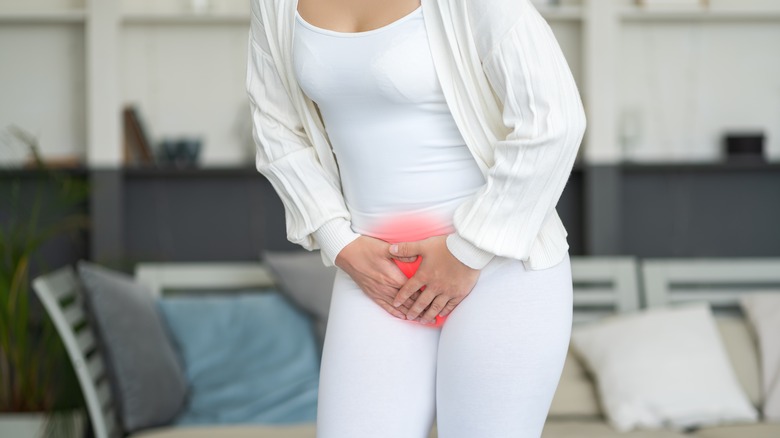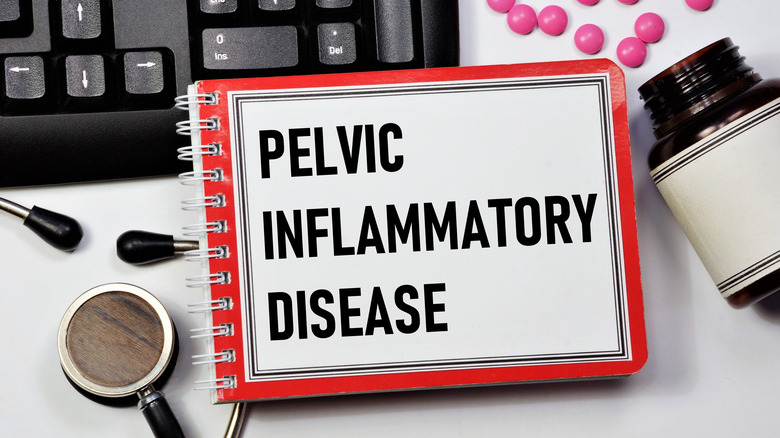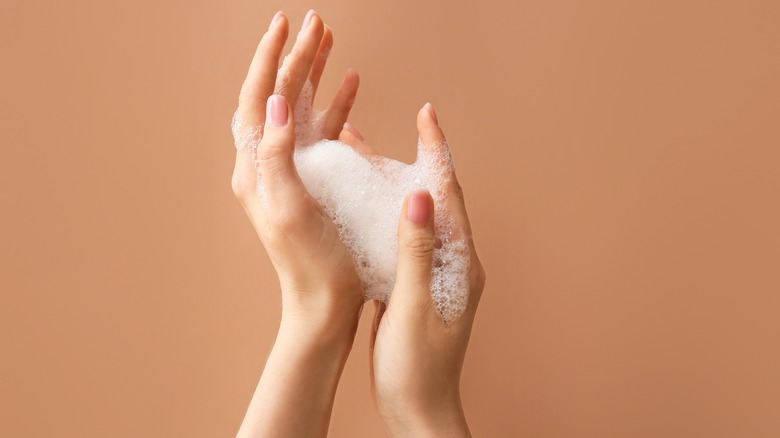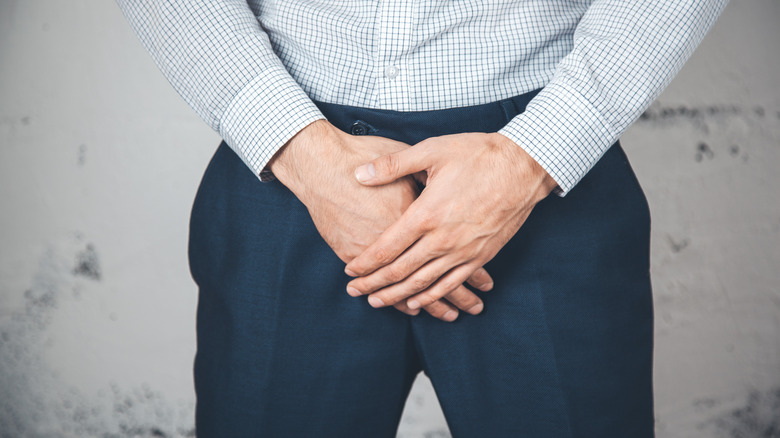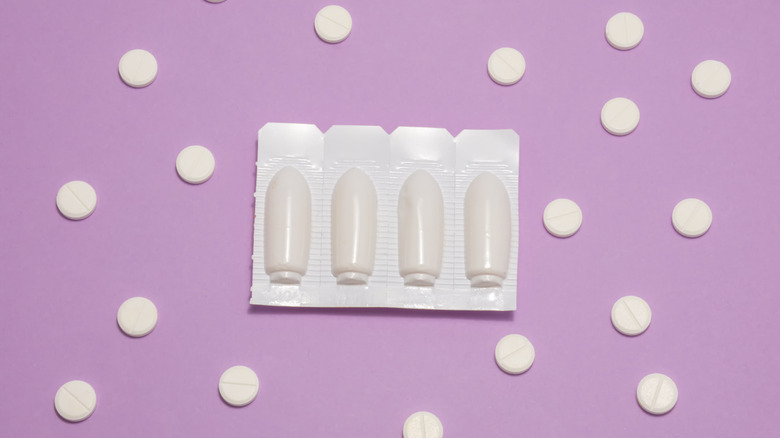14 Reasons You May Have Painful Urination
There are few things more irritating than a burning sensation when you pee. Heading to the bathroom and feeling a burning or aching sensation as you go to the bathroom is something that many people experience throughout their lives, and it can be a pretty worrying moment. And while sometimes painful urination can be mild and short-lived, in other situations, it can get pretty severe and be quite serious. "Many of the causes of painful urination can get worse and have a great implication for your long-term health," warns NYU Langone Health Department of Obstetrics & Gynecology clinical assistant professor Lauren Ruggiero to Self, highlighting the importance of addressing that burn immediately.
But the thing is, because painful urination is less frequent for a lot of people than a stubbed toe or a papercut, it can be hard to figure out how to treat it, and even more so because there's often not a lot of knowledge around the conditions that cause it. And that's something that we wanted to put a stop to here at Health Digest. That's why we decided to put together a comprehensive list of all the reasons you could have painful urination.
You could have urethritis
When we go to the bathroom, our urine passes from the bladder to the toilet bowl via our urethra, a thin tube connecting the inside and outside of our bodies (per the Cleveland Clinic). But this tube can be prone to infection, and when this occurs, you may develop a case of urethritis, one of the symptoms of which is painful urination. Urethritis is relatively common, with approximately 4 million Americans developing the condition each year. Urethritis can be caused by several things, such as particularly rough treatment of the urethra, urinary tract infections, or when potentially abrasive things coming into contact with the tube like spermicide or soap. However, it most frequently occurs as a result of a sexually transmitted infection like genital herpes or chlamydia.
It's worth bearing in mind that pain while peeing isn't the only symptom of urethritis. The condition can also flag itself through pain in your pelvis or when having sexual intercourse, itchiness around the urethra, and in men, discharge from the penis. Luckily, urethritis is easily treated through a course of standard antibiotics, and the condition clears up pretty quickly in most people.
Pain when you pee could be a result of treatment for cancer
Although painful urination is often prompted as a result of an infection, it can sometimes be caused by treatment for another condition entirely. Such is the case with treatment for certain types of cancer like bladder cancer. People who undergo radiotherapy for bladder cancer may experience inflammation as a consequence, a condition known as radiation induced cystitis, says Cancer Research UK. This may cause pain when you pee, as well as irregularity around the need to go to the bathroom, such as feeling like you need to urinate when you've just gone, or having to go more frequently.
Other types of cancer treatment like chemotherapy or immunotherapy may also impact your bladder cells, and surgery for bladder cancer and other cancer types could result in a urinary tract infection, which may cause painful urination (per the National Cancer Institute). For radiation induced cystitis, it's possible to ease symptoms by taking on more non-caffeinated fluids (avoiding caffeine as much as possible, due to its potentially aggravating effect on your bladder) and drinking cranberry juice in particular. If you notice that you have blood in your urine following radiation induced cystitis, speak to your doctor immediately.
It could be due to an STI
A burning sensation while you pee may well be down to having contracted a sexually transmitted infection, or STI. There are several common STIs that can cause painful urination, as Healthline points out. Chlamydia, genital herpes, and gonorrhea can all show themselves through pain when you pee or during sexual intercourse, with some, like gonorrhea, also having symptoms of discharge (per Healthline).
While some STIs are super common and are now easily treatable, that's no reason why you should ignore your painful urination symptoms, or not act on them immediately. STIs can cause a huge amount of increasingly dangerous symptoms and complications, with fertility potentially compromised, an increased risk of cancer or diseases like HIV, and even a higher chance of mortality. STIs may also be passed onto unborn babies in the womb, leading to huge health risks. It's also worth bearing in mind that, while painful urination is a common symptom of STIs, some people experience them with no symptoms at all, so it's super important to both get yourself checked frequently, and to advise other people to get checked if you've had sex with them while having a sexually transmitted infection yourself.
Painful urination can be caused by bladder endometriosis
While endometriosis is a relatively common condition, bladder endometriosis is far less frequent, according to research published in Case Reports in Urology. But it's helpful to remain aware of the symptoms of bladder endometriosis, one of which is painful urination (via Medical News Today). Bladder endometriosis, characterized by endometrial tissue growing around or inside the bladder, may also mark itself through other symptoms involving urination, including needing to go to the bathroom more often or needing to go more urgently, as well as pain around the lower back or pelvis.
Endometriosis in the bladder will not itself result in fertility issues. However, if a woman also has endometrial tissue in or around her reproductive organs, that can diminish her ability to conceive. While there's no cure for bladder endometriosis, it can be treated in a range of ways. Your doctor may prescribe you medication, or in certain cases, surgery may be the best choice, to remove some of the endometrial tissue. It's also useful to bear in mind that bladder endometriosis has similar symptoms to interstitial cystitis, and it's easy to confuse the two conditions. If you notice any of the symptoms of bladder endometriosis, it's best to contact your doctor as soon as possible.
You might have a urinary tract infection
If you're one of the one in two women who will experience a urinary tract infection at some point in her life (per research published in the American Journal of Medicine), you'll likely be familiar with the symptoms already. But for those who haven't had a UTI, it's useful to be aware of any pain when you're peeing, as this could be one of the first symptoms, as Healthline points out. Lower urinary tract infections occur when microbes make their way into your urethra and potentially your bladder. As well as painful urination, they can be noticed through a range of other symptoms like cloudy or especially dark urine, pee that smells especially strong, or feeling the need to use the bathroom more frequently than usual.
Lower urinary tract infections are usually way more common, but milder, than upper UTIs. Lower UTIs are typically treated with medication specific to the type of microbe causing the infection (bacterial UTIs will be cleared up with antibiotics, whereas fungal UTIs will be treated with antifungal medication).
If you're feeling pain when you pee, it could be because of kidney stones
Ah, kidney stones. How we hate thee. While kidney stones might be small, they can cause a big impact. These mineral deposits, which are created in your kidneys following a build-up of oxalates and calcium, can result in a huge amount of pain when you pee, especially as the kidney stone moves through your urinary tract and urethra on its way to being passed (per the Mayo Clinic). It's worth pointing out that some kidney stones may only result in mild pain, or no pain at all (via WebMD). But when you do feel them, it might be more than just pain while you pee — you may also feel pain that spread through your pelvis and around your lower back.
If you've had a kidney stone before, you'll likely be keen to avoid them in the future. That's why preventative measures are useful, with the first and most important being to stay well-hydrated, as the National Kidney Foundation states. Increasing your water intake then increases your level of urination, allowing the minerals in your kidneys to be flushed out faster so they don't build up.
Your bladder might be irritated by certain foods, causing painful urination
Our bladders sure do a lot of work, don't they? Day and night they keep our bodies in good working order by moving urine out of them, allowing us to go about our day-to-day business (when we're not in the bathroom, that is). That's why it's so important to take care of them — but a few incorrect food choices can set them back quite significantly, leading to painful urination, according to The Johns Hopkins Women's Center for Pelvic Health. Some bladder irritants are surprisingly common, with things like apple juice, chocolate, coffee and decaffeinated coffee, and pineapple all potentially causing people to have more sensitivity when urinating and potentially feel pain while they do so. Citrus fruits like lemons or oranges, dairy products, and strawberries could also be giving your bladder a harder time than you think.
Importantly, though, not all people will experience bladder irritation from eating or drinking these items. It can also be difficult to identify exactly what's causing your bladder irritation if you're eating a varied diet (which is a good thing to do, we should stress). A good way to figure out if your bladder is sensitive to a particular food is by removing potentially irritating foods from your diet and adding them back in gradually, one at a time, to see if they cause a negative reaction.
Prostatitis can produce pain when you urinate
The prostate gland plays a vital function in sex and reproduction, but now and again, it can become inflamed. This condition is known as prostatitis, a symptom of which is painful urination, as well as a harder time urinating in general, pain around the stomach and pelvic area, and pain when ejaculating, according to the Mayo Clinic. Prostatitis may be a result of a few different factors, but the main distinction is whether it's caused by a bacterial infection or not. Chronic prostatitis may occur without any notable infection and may be harder to treat, with doctors potentially prescribing anti-inflammatory medication. On the other hand, bacterial prostatitis can be treated through a course of antibiotics, as the Urology Care Foundation discusses.
Prostatitis can be diagnosed in a few different ways, the first being via a prostate exam. Your doctor may also want you to take an ultrasound so that they're able to assess the prostate in better detail, or they may test bodily fluids to see your white blood cell levels and whether you have any bacteria in your blood.
You might have cystitis
If you've had cystitis before, you'll know it's no fun. Cystitis occurs when your bladder becomes inflamed, causing a range of symptoms around urination, one of which is pain when peeing, says Better Health. The most common cause of cystitis is the E. coli bacteria, which can come from a range of sources such as contaminated food or water, or even other people (per the Mayo Clinic).
The good news, though, is that you can often catch cystitis when it's fairly undeveloped, and if you take necessary precautions, you might be able to prevent it from getting worse (via Better Health). Amping up your hydration and consuming an alkalizing agent like baking soda or a urinary alkaliser can keep things from developing further. If your cystitis does get worse, however, it may be worth seeing your doctor, who will be able to help you get rid of it. Luckily, in some cases, once you've had cystitis, you won't get it again, as your body will build up an immunity to it. In other cases, you may have recurrent infections.
Painful urination may be a sign of cancer
Experiencing pain while you pee can be caused by a range of conditions of varying severity, and it's important to be aware of them all, especially as one of the causes could be bladder cancer. There are projected to be over 80,000 new cases of bladder cancer in 2022 in the U.S., according to the American Cancer Society. And a particularly painful or burning sensation while you pee could be a key sign, as well as a less powerful stream when urinating (per the American Cancer Society).
Several other symptoms are similar to other conditions that affect the bladder and urinary tract, and it's possible to mistake bladder cancer for something else entirely, leading to delayed treatment. That's why it's highly important to get in touch with your doctor the moment you notice any changes in your peeing or bladder activity. It's important to note, too, that one of the first symptoms of bladder cancer can be blood in your urine, which may appear and then disappear for an extended period. Never ignore this: While blood in your pee may also be caused by a UTI or by kidney stones (per the NHS), if you notice any discoloration in your urine, contact a healthcare provider immediately.
Pelvic inflammatory disease can result in pain when you pee
If you experience an STI, you may not even know it at first, with some symptoms of STIs taking months or years to show up (per the NHS). But when you don't treat an STI it can lead to further complications, including pelvic inflammatory disease. Pelvic inflammatory disease, or PID, may occur as a result of untreated gonorrhea or chlamydia, and one of the symptoms is a burning pain when you pee, as well as vaginal discharge, or bleeding during sex or between periods (per the Centers for Disease Control and Prevention).
Although you can treat PID, it can cause long-term complications fast, and as time continues to pass without treatment, later-stage consequences get more likely. PID can have an impact on fertility, possibly leading to difficulty or inability to conceive, fallopian tube scarring, and ectopic pregnancies. It's also worth bearing in mind that PID is more likely to manifest in people who have had the condition before.
The hygiene products you're using could be causing your pain
While a burning sensation during urination will have most people worrying about whether they have a condition that needs to be checked by a doctor, sometimes it's way more simple than we think. In fact, a lot of the time painful peeing may be caused by external factors, including any hygiene products that you're using which aren't very well-suited to your genitals. "The vagina has a good self-cleaning protocol, if you will, to keep its pH in balance and keep things in order," advises sexual and reproductive health expert and Northwell Health's board-certified gynecologist Alyssa Dweck via Self. When we're cleaning the area with hygiene washes or soap, this can irritate the vagina and lead to pain when you urinate.
Using a douche to clean the vagina may also irritate the area, leading to pain, and burning can even occur from something as innocuous as lying in a bubble bath, says Dweck. Penises can also be irritated by hygiene products, with highly fragranced soaps or balms, products that contain dye, and certain laundry detergents potentially causing pain in the area and when you pee (per Bens Natural Health). That's why it's important to opt for fragrance-free soaps, and to never clean too vigorously.
Urethral stricture might result in painful urination
Our urethra plays an essential function, but now and again it can run into a little trouble. One such difficulty can be when the urethra sustains damage which leads to scarring. This condition, known as urethral stricture, can make your urethra narrower, and therefore makes it harder to pass urine through, says the Mayo Clinic. This can then result in pain when you pee, as well as symptoms like not being able to empty your bladder fully, and a less direct stream of urine (with your pee splattering or spraying instead). Urethral stricture may also lead to further complications like infection.
So how does the urethra become scarred? A surprising number of things can cause damage, from using a catheter (or anything inserted into the urethra for medical reasons), to having a sexually transmitted infection. Prostate or urethra cancer may also cause scar tissue, as can treatments for cancers, such as radiation therapy. Your prostate can also affect your urethra heavily and lead to stricture, especially if you've had the gland reduced or removed via surgery.
Pain when peeing may be a symptom of a yeast infection
Yeast infections are highly common for women, with around 75% experiencing them at some point, and pain while you pee can be one of the first signs of a yeast infection, according to the Office on Women's Health. Caused by fungal growth, yeast infections often show through symptoms like itchiness around the vaginal area, vaginal discharge, and pain and swelling around the vagina. Penile yeast infections can also occur, and while they're less frequent, they can also cause painful urination, as well as pain and itchiness around and on the penis (per Healthline).
The good news is that yeast infections are pretty easy to treat. Your doctor will generally prescribe you an antifungal medication, which either needs to be applied topically or, in some cases, taken orally. Although yeast infections can clear up relatively quickly, it's important to treat them as soon as you know you have one, as delaying treatment can result in further complications, according to Healthline. If your skin becomes cracked due to a yeast infection and persistent itchiness, this may lead to further infections and health complications. Symptoms that accompany a yeast infection like vomiting or fever are signs that you should see a doctor as soon as possible.
